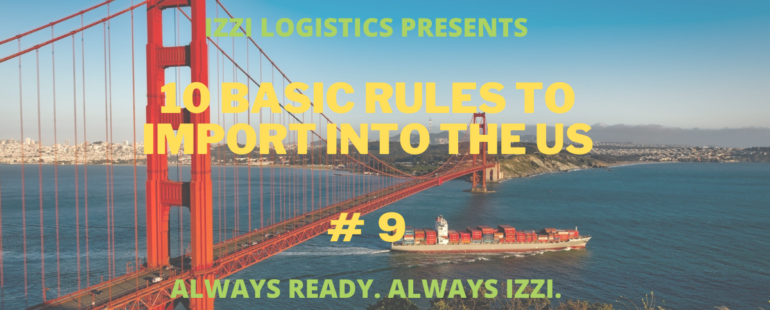Hello, again! For this post, we are going to take you back to school. Well, in this case, you are going to the “Everything You Need to Learn to Be a Boss Importer” school.
It is time to learn some important terminology that will facilitate your trade and make your transactions fruitful. Today we will talk about Incoterms.
As of now, US imports of consumer goods are at an all-time high breaking all the previous records! The total value of imports has risen 2% to a fresh new high of 258.3 billion dollars. This just goes to show how profitable importing can be. And now is the best time to get it going!
What are Incoterms?
Incoterms are the International Commercial Terms created in 1936 by the International Chamber of Commerce (ICC). These are a series of rules established to define a commercial transaction between the two parties: the exporter and importer. They define the terms of responsibilities for both parties, including costs, documents, logistics, methods of transportation, point of delivery, and more.
Why Are They Important?
Incoterms are universally accepted and offer a reliable method or regulation for the contracts of sale of goods. Essentially, incoterms offer standardized terminology that both parties can use to ensure they’re clear on their responsibilities and the other party’s, thereby minimizing the risk of misinterpretation or confusion.
The Incoterms
Incoterms 2020 are updated and group the 11 rules into 2 categories.
P.S. Here is a simple chart that might come in handy!
Any Mode of Transport
- EXW
Ex-Works (insert place of delivery)
The seller is only responsible for the goods till his premises. After that, the buyer is to undertake all responsibility for the goods till the destination. - FCA
Free Carrier (insert named place of delivery)
The point of delivery of the goods is clearly specified, which is either the seller’s facilities or another designated destination.
- CPT
Carriage Paid To (insert place of destination)
The seller is to hire an appropriate carrier to deliver the goods as well as bear its costs. - CIP
Carriage and Insurance Paid To (insert place of destination)
The seller pays for the transport to the destination and also delivers the goods to the buyer through a carrier. - DAP
Delivered at Place (insert named place of destination)
The seller is to deliver the goods to the buyer, without unloading.
- DPU
Delivered at Place Unloaded (insert of place of destination)
The seller is to deliver the goods to the buyer, with unloading. - DDP
Delivered Duty Paid (Insert place of destination)
The seller is to deliver the goods without unloading at the premises of the buyer or another established point.
Sea and Inland Waterway Transport
- FAS
Free Alongside Ship (insert name of port of loading)
The seller is to deliver the goods alongside the ship at the port of shipment decided by the buyer. - FOB
Free on Board (insert named the port of loading)
The seller is to deliver the goods by placing them on board the ship at the port decided by the buyer. - CFR
Cost and Freight (insert named port of destination)
The seller is to assume the cost and freight to the designated port. - CIF
Cost Insurance and Freight (insert named port of destination)
The seller is to bear the cost of insurance and freight to the designated port.
Which Incoterms Should You Use?
The ICC recommended using Incoterms 2020 from the 1st of January, 2020. However, all contracts using any incoterms are valid, as long as they are agreed upon by both parties, identified on the export-related documents, and the incoterms version is clearly specified; 2020, 2010, or earlier.
That is it! So get going and make the most out of your trading business! And as always, if you ever feel lost with the terms and regulations or need an extra hand to deal with the technicalities of trade, feel free to reach out to us at izzicontact@izzilogistics.com.
The last (and the most critical) part of this series will be out soon – so keep your eyes peeled!


Comments (No Responses )
No comments yet.